Related Research Articles

Geddy Lee Weinrib is a Canadian musician, best known as the lead vocalist, bassist, and keyboardist for the rock group Rush. Lee joined the band in September 1968 at the request of his childhood friend Alex Lifeson, replacing original bassist and frontman Jeff Jones. Lee's solo effort, My Favourite Headache, was released in 2000.

Rush was a Canadian rock band that primarily comprised Geddy Lee, Alex Lifeson (guitar) and Neil Peart. The band formed in Toronto in 1968 with Lifeson, drummer John Rutsey, and bass guitarist/vocalist Jeff Jones, whom Lee immediately replaced. After Lee joined, the band went through several line-up changes before arriving at its classic power trio lineup with the addition of Peart in July 1974, who replaced Rutsey four months after the release of their self-titled debut album; this lineup remained intact for the remainder of the band's career.
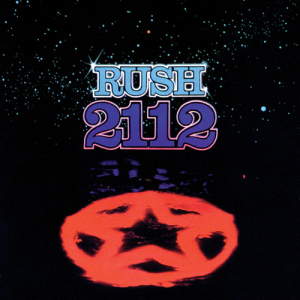
2112 is the fourth studio album by Canadian rock band Rush, released in March 1976 by Mercury Records. It reached No. 5 in Canada and became the band's commercial breakthrough in the US, peaking at No. 61.

A Farewell to Kings is the fifth studio album by Canadian rock band Rush, released in September 1977 by Anthem Records. After touring their previous album 2112 (1976), which saw the group reach a new critical and commercial peak, they started work on a follow-up. They decided to record at Rockfield Studios in Wales, the first time Rush recorded an album outside of Toronto. The band expanded their sound with each member playing new instruments that they had not previously used, and recorded a mix of concise and long songs.

Fly by Night is the second studio album by the Canadian rock band Rush, released on February 14, 1975, by Mercury Records. It was the first Rush album to showcase elements of progressive rock for which the band has become known. It was also the first to feature lyricist and drummer Neil Peart, who replaced original drummer John Rutsey the previous summer just prior to the band's first North American tour. Peart took over as Rush's primary lyricist, and the abundance of fantastical and philosophical themes in his compositions contrasted greatly with the simpler hard rock of the band's debut album.

Rush in Rio is a three-disc live album by Canadian band Rush, released on October 21, 2003. The album is also available as a two DVD set. With the exception of the last two tracks on the third disc, the album was recorded at Maracanã Stadium in Rio de Janeiro on the final night of the Vapor Trails Tour. The other two tracks were taken from previous shows on the same tour. "Between Sun & Moon" was recorded at the Cricket Wireless Pavilion, Phoenix, Arizona, on September 27, 2002, and "Vital Signs" was recorded at the Colisée Pepsi, Quebec City, Quebec, on October 19, 2002.
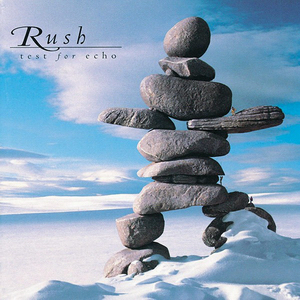
Test for Echo is the sixteenth studio album by the Canadian rock band Rush, released on September 10, 1996 on Anthem Records. It was the final Rush album to be co-produced by Peter Collins. The band supported the album with a world tour in 1996 and 1997, after which they went on a five-year hiatus following the deaths of drummer Neil Peart's daughter and wife, and would not record again until 2001.

Different Stages is a live album by Canadian rock band Rush, released in 1998. The bulk of the first and second discs were recorded at the World Music Theatre in Tinley Park, Illinois, during the 1997 Test for Echo tour. Five other songs from various stops along the tour were included and three songs from the 1994 Counterparts tour. The third disc is taken from a performance at the Hammersmith Odeon in London during the A Farewell to Kings tour in 1978.
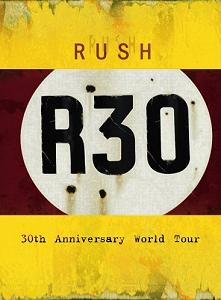
R30: 30th Anniversary World Tour is a live DVD by the Canadian rock band Rush, released on November 22, 2005 in Canada and the US, and November 28, 2005 in Europe. The DVD documents the band's R30: 30th Anniversary Tour, and was recorded on September 24, 2004 at the Festhalle Frankfurt, Germany.

A Show of Hands is a concert film released on VHS, Laserdisc and DVD by the Canadian rock band Rush. It documents a live concert performance by the band on their 1987-88 Hold Your Fire Tour. In 1989, the band released an audio album of the same name on vinyl LP, audiocassette, and compact disc. The video comprises an entirely different recording, and features a different track list.
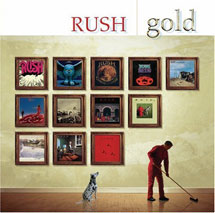
Gold is a compilation album by Canadian rock band Rush, released on April 25, 2006.
"A Passage to Bangkok" is a song by Canadian rock band Rush, released in March 1976 by Anthem Records. The song appears on the band's fourth studio album 2112 (1976). With the album's title track comprising the first half of the record, "A Passage to Bangkok" opens the second side of the album.

"Lakeside Park" is a single from Rush's third album Caress of Steel. The music was written by Geddy Lee and Alex Lifeson, and the lyrics were written by Neil Peart.
"Bastille Day" is a song by the Canadian rock band Rush, and is the opening track from their third album, Caress of Steel. Like most Rush songs, the music was written by Geddy Lee and Alex Lifeson, and the lyrics by Neil Peart. The song uses the storming of the Bastille, which began the French Revolution, as an allegory for revolutionary fervor needed in the struggle against tyrannical government.

Snakes & Arrows Live is a live double CD and DVD by Canadian band Rush. The CD was released on April 14, 2008, in the UK and on April 15, 2008, around the world. It was also released on DVD and Blu-ray on November 24, 2008. The material was taken from two performances during the first leg of the Snakes & Arrows Tour, recorded at the Ahoy Arena in Rotterdam, Netherlands on October 16 and 17, 2007. The album features nine of its 27 tracks drawn from Snakes & Arrows.
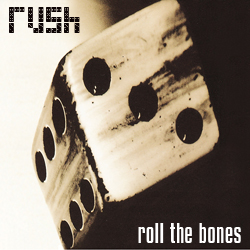
"Roll the Bones" is a song by the Canadian rock band Rush. It was released as the second single from their 1991 album of the same name.

"Show Don't Tell" is the first single on Canadian rock band Rush's 1989 album Presto. The song peaked at number one on the U.S. Hot Mainstream Rock Tracks Chart, the second of five songs by Rush to top the chart.

Rush Through Time is a compilation album by Rush, released in Europe as a picture disc only in 1979. The compilation contained selections from the band's second, third, fourth, and fifth studio albums. The album was subsequently repackaged as a standard vinyl album with a colour sleeve and updated graphics on the back cover in 1982.
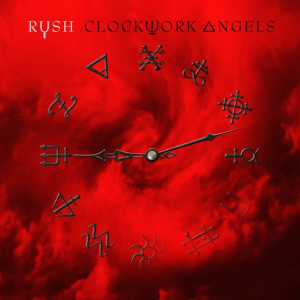
Clockwork Angels is the nineteenth and final studio album by Canadian rock band Rush, released on June 8, 2012, on Roadrunner Records. During the band's year-and-a-half break following its Snakes & Arrows Tour, the group decided to write a new studio album. Most of the album was recorded between October and December 2011 at Revolution Recording in Toronto, Ontario, Canada.
The Exit... Stage Left Tour was a concert tour by Canadian rock band Rush, in support of the band's second live album Exit... Stage Left and its accompanying video.
References
- ↑ Lee, Geddy (2023). My Effin' Life (1st ed.). HarperCollins. p. 225. ISBN 978-0-06-315941-9.
- ↑ Murphy, Sean (22 May 2011). "The 25 Best Progressive Rock Songs of All Time". PopMatters . Retrieved 31 July 2016.
- ↑ Freedman, Robert (1 August 2014). Rush: Life, Liberty and the Pursuit of Excellence. Algora Publishing. p. 50. ISBN 9781628940848 . Retrieved 16 August 2016.
- ↑ Length of actual song, as noted on the CD.
- ↑ The Great Rock Discography. 1995. ISBN 9780862415419.
- ↑ "2112: Overture/Temples of Syrinx from new DVD". T-n-m-s.com. Archived from the original on 25 July 2011. Retrieved 2011-08-13.
- ↑ See blog reviews on SongMeanings | Lyrics | Rush – 2112
- ↑ Rush Album Info
- ↑ Bowman, Durrell (2003), Permanent Change:Rush, Musicians' Rock, and the Progressive Post-Counterculture (PDF), University of California Los Angeles, p. 110, retrieved 2010-12-30
- ↑ Fielden, Jerry (2000). "The influence of Electronic Music in Rock Music, 1967-76" . Retrieved 2010-12-30.
- 1 2 Telleria, Robert: Rush Tribute Mereley (sic) Players, page 149. Quarry Press, Inc. 2002
- ↑ "Single Picks" (PDF). Record World. May 7, 1977. p. 22. Retrieved 2023-02-16.
- ↑ Pingree's Music Reviews, Tag Archive: Geddy Lee, Rush – 2112 , January 26, 2011
- ↑ Bienstock, Richard (April 2013). "Big Time Rush". Guitar World . Retrieved 16 August 2023.